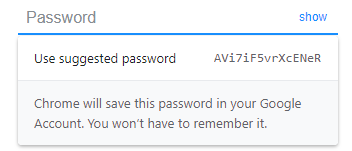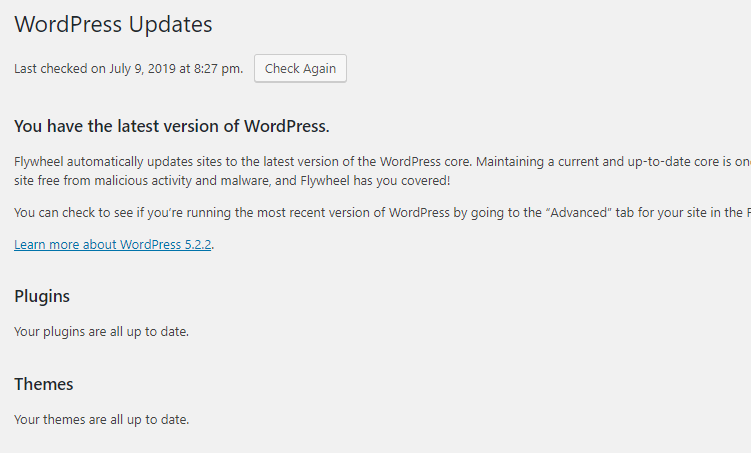5 Cybersecurity Mistakes You’re Probably Making Right Now
Don’t leave your private data vulnerable to hackers. Avoid these common mistakes by making simple changes to protect yourself!
We’ve all heard the stats about cybercrime and how big of a deal it is:
- Cybercriminals earn $1.5 trillion each year
- Most victims are individuals and small businesses
- Security breaches have gone up by 67% over the past 5 years
- Cybercrime will soon cause $6 trillion in annual damages – that’s about $1,500 per internet user in the world
- 23% of Americans are victims of cybercrime each year
We all know that cybercrime is a big problem, and many of us have been personally hurt by it. But what exactly we need to do to prevent cybercrime is more complicated. SSL, Firewalls, passwords…it gets confusing!
What if we told you that you’re probably doing something that makes you an easier target for cybercriminals? It’s true. Here are 5 cybersecurity mistakes that most people and companies are making on a regular basis. The good news is – they’re super easy to fix!
Using Weak Passwords
If you’re using a password that can be easily guessed by a person or computer robot, that makes you and/or your company an easier target for cybercriminals. For example:
- Common passwords such as 123456, rainbow, letmein, password, etc.
- Passwords that contain words that can be guessed or obtained from social media (pet’s name, spouses name, child’s name, graduation year, birth date, etc.)
- Any password under 8 characters.
- Passwords using common dictionary words such as sunshine, fishing, etc.
How to beat hackers:
Choose passwords that are:
- 12 characters or longer
- A combination of lowercase, uppercase, numbers, and special characters
- Randomly generated, if possible (if not, choose a phrase that’s long but not too hard to remember)
Accessing WiFi Unprotected

One of the times you’re most vulnerable to attack is when you connect to a public WiFi network at a hotel, restaurant, airport, etc. It’s easy for hackers to either broadcast their own WiFi signal (that looks like the legitimate network) or hack the WiFi router. Once the hacker controls the router, they can see, intercept, or modify data you send and receive. For example, they could get your email password and use that to access your email account, bank account, and more.
How to beat hackers:
Use a VPN every time you connect via public WiFi. VPNs are cheap (you can get a top-notch VPN from just $3/month) and very effective at keeping hackers away, even if you’re connecting via a hacker-controlled WiFi network!
Re-using Passwords
Once you’ve created a secure password, it’s very convenient to use the same password across many sites. (Who can remember 250 different passwords?!) But this is a big mistake. Once hackers get your password via a data breach on one site, they can then use it to access your account on other sites.
For example, hackers breached Yahoo and stole data for every single user account. If you used the same password on your Yahoo account and your bank account, those hackers would now have access to your bank account!
Data breaches are far too common, with hundreds of records being exposed every second. If your password gets exposed, hackers could use it to access every account you used the same password on. Scary!
How to beat hackers:
Use a unique password for each site. To help you remember the passwords, use the password manager provided your web browser.

Not Keeping All Software Updated
Keeping every piece of software updated across every computer, mobile device, website, server, and other device in your company is a big job. So, unfortunately, many companies let things slide. This is a big mistake. Outdated software is one of the most common causes of data breaches.
Hackers are constantly coming up with new attacks, the only way to stay ahead of them is to ensure that your software has the latest security patches and updates. This includes (but isn’t limited to):
- Operating System (eg Windows) updates on every computer
- Updating individual software (eg Word, Adobe, etc.) on every computer
- Operating System (eg Android) updates on every mobile device
- Updating apps on every mobile device
- Updating anti-virus definitions on every computer and device
- Operating system updates on every server
- Software updates (Apache, PHP, etc.) on every server
- Software updates on every website (WordPress, Magento, etc.)
- Plugin updates on every website (WordPress plugins, WordPress themes, etc.)
- And many more!
How to beat hackers:
Set up automatic updates everywhere you can. Also, create a schedule for manually checking each server, computer, website, and other device for software updates on a regular basis. Install all security updates as soon as possible!

Using HTTP and/or FTP
For many years, HTTP was the standard protocol for viewing webpages and FTP was the standard protocol for uploading and editing website files. Not anymore. Due to increased security requirements, no website should be using HTTP or FTP nowadays.
How to beat hackers:
Use HTTPS on every page on your website, and always use SFTP or FTPS when editing your website.
Conclusion
Cybersecurity is a big deal. A small lapse in security can result in significant damages to your website, bank account, company, or other assets. Taking a few simple steps (like those outlined in this article) can make you a much tougher target for hackers.


 (21 votes, average: 4.14 out of 5)
(21 votes, average: 4.14 out of 5)